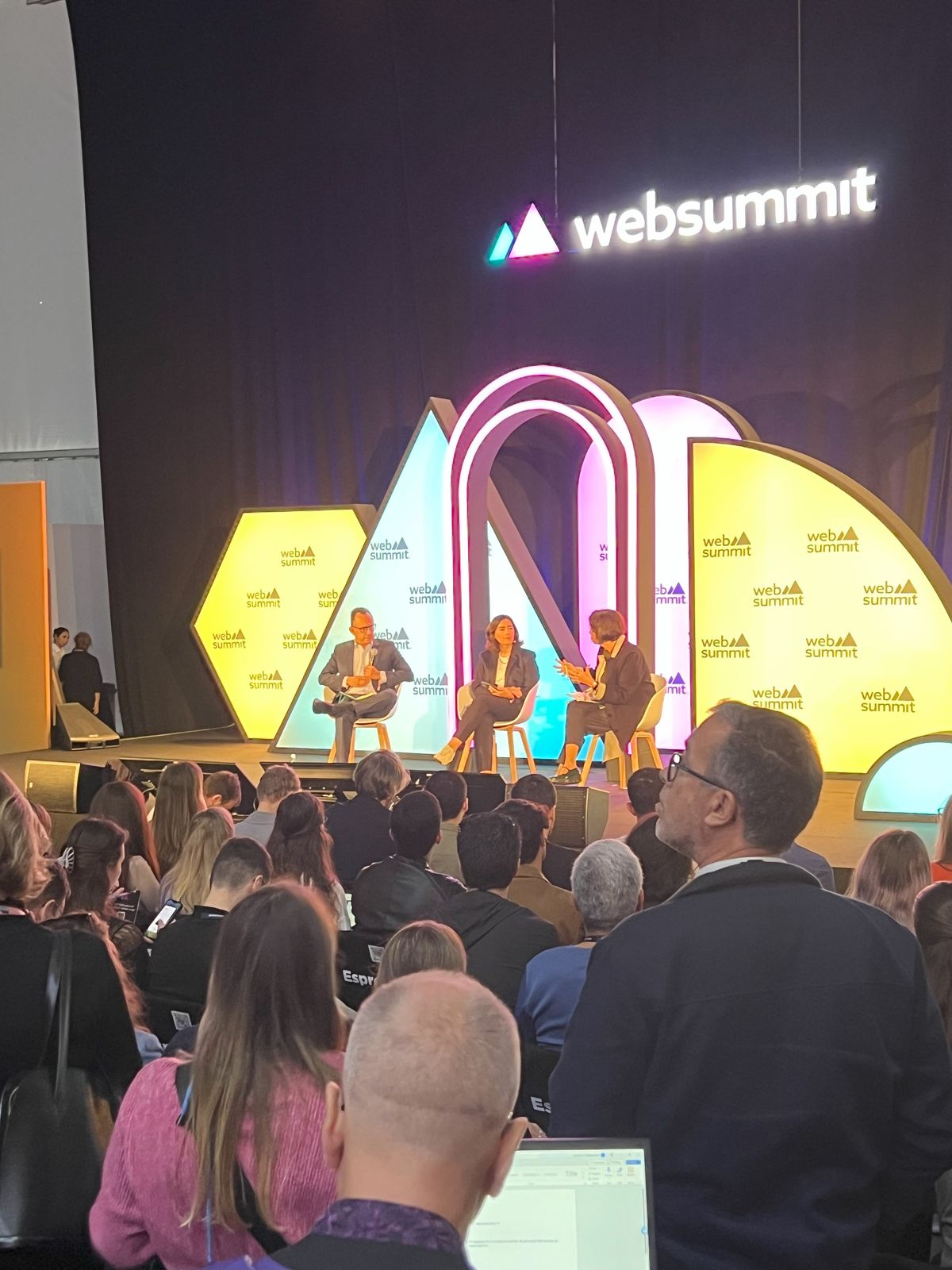At the second full day of the Web Summit here in Lisbon it suddenly struck me that the overwhelming majority of attendees appear to be Caucasian Europeans and Americans. Sure, there is a smattering of Asians, but very few Black or Brown people. Perhaps this partly is a function of the summit being held in Europe, but it also may be an indicator that there is the need for more efforts to diversify the tech entrepreneur population and workforce.
On the positive side, there is a surprisingly high percentage of women. I would guesstimate around 35-40%. To those that have been advocating for more women in tech over the last 10 years this is significant progress.
But the lack of diversity in viewpoints and groupthink is troubling to me. The conference almost has the feel of a religious fervor or reverence for the god of tech (and money), and the new deity of AI.
I experienced some level of lip service about the societal impacts of AI in the several presentations I attended. But none of the numerous speakers that I encountered on the subject sounded any major alarms about some of the profound dangers that have been voiced about AI in the mainstream media.
For example, there has been much handwringing in the public at large about the possibility that AI will largely eviscerate the labor force. There also have been scary predictions by some who work in the field about the prospect of AI eventually becoming self-aware or sentient. While it’s certainly okay to take the view that these downside risks are remote, isn’t this the kind of event to have a debate on the subject?
Instead, I heard several of the speakers on AI state that it is isn’t “magic,” and there was no mention of it acquiring consciousness or sentience. In fact, several speakers seemed to downplay the capabilities of AI.
The speakers I encountered were in agreement with their prediction that AI will create so many new jobs that its effect on overall employment will not be as dire as predicted. One center-stage speaker who was quite entertaining, Cassie Kozyrkov, painted a particularly rosy picture. She posited that AI is just a tool and will require a multitude of humans to be employed, both to utilize it for their particular tasks at hand and to check its output.
But Ms. Kozyrkov’s premise is based on the admittedly flawed versions of AI that exist in 2023 - which make mistakes. Will human output-checkers still be needed in 3 to 5 years as the technology is perfected?
Ms. Kozyrkov also was speaking to a sophisticated and educated audience, the class of people whose employment prospects could benefit from AI. But what about the blue-collar and lower-level office workers that make up the vast majority of the workforce in the world? Will they transition easily to the brave new world that is being created?
Such workers come from the same segments of the populations of Europe and the US who already are very unhappy about how globalization has affected them. This anger has given fuel to the rise in populism. Will the AI revolution deal another blow to these people, causing more political upheaval?
The Web Summit would benefit if it did not shy away from such profound and complicated questions. Now is the time for lively debate on these issues. This is so, even contrarian views do not fit the prevailing philosophy that tech advancement generically is more positive than not. The technologists who attend the summit are the very people who need to be at the center of such discussions.

Member discussion: